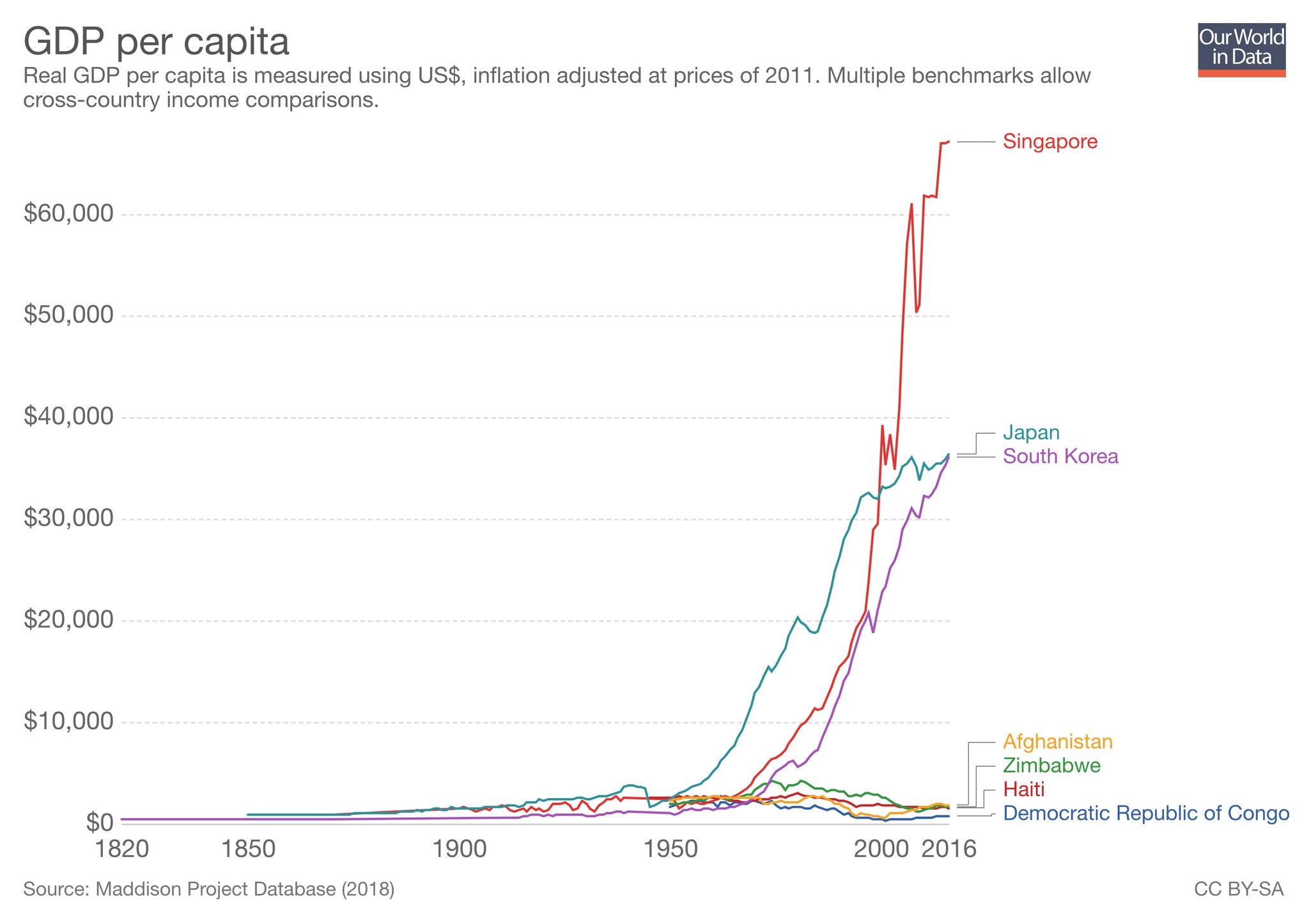As part of these materials, we developed a new video that features two female teachers, one Canadian and one Haitian, as they reflect on the importance of education.
To watch the video, click here.
One comment struck me in the video: "Without education, there will be no change."
In many ways, education and health care are the foundation of economic development, government stability, social cohesion, and gender equity. I have little control over a country's health care system but I can have significant influence over the educational quality of a classroom, a school, or even a system of schools.
This is exactly what we are trying to influence in northern Haiti: better teachers = better schools = better outcomes for students = better outcomes for a country
A researcher I follow, Max Roser, recently made this statement and provided evidence through the following graph:
"Until the 1950s people in Japan, Korea, and Singapore were as poor as people in Haiti, the Congo, Zimbabwe, and Afghanistan. Since then the first three economies achieved growth and the others did not."
When I look at the following graph, I think the fundamental reason that Japan, Korea, and Singapore have had such significant growth - while Haiti and others have not - is because of education.
Without education, there will be no change.


No comments:
Post a Comment